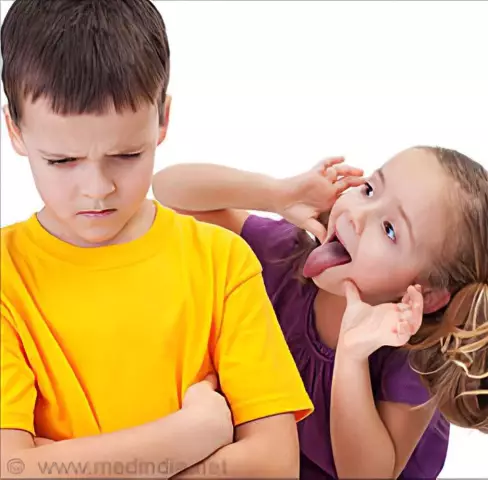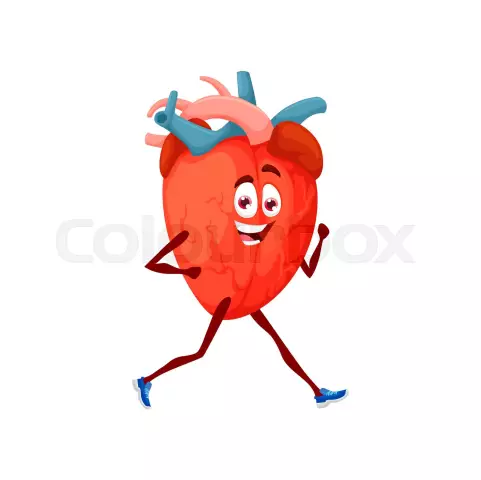- Author Rachel Wainwright wainwright@abchealthonline.com.
- Public 2023-12-15 07:39.
- Last modified 2025-11-02 20:14.
Children with behavioral problems
Every society has certain norms of mental health, law, culture and morality. Social norms often suppress the instincts and desires of the individual. But if you want others to understand and accept you, you need to somehow comply with these norms. For example, seeing a beautiful flower bed in bloom and following social norms, you inhale and admire the flowers instead of picking them off and taking them away. Naturally, when raising your child, you try to accustom him to the same course of action. And yet, even with respectable parents, the behavior of children sometimes goes beyond the norms prescribed by society. Psychologists call this behavior deviant, asocial, inadequate, and so on. What is the phenomenon of children with behavioral disabilities and how to deal with it?
Deviant behavior

In fact, children with behavioral disorders are not uncommon. Some deviations not only cause resentment of parents and teachers, but also carry the seeds of future misconduct, posing a threat to the child himself, his environment and even society as a whole. When studying children with behavioral deviations, psychologists subdivide their actions into social deviations of selfish, aggressive and socially passive orientation. Social deviations of selfish orientation include theft, fraud, speculation and other misconduct, the purpose of which is to get profit. Deviations of an aggressive orientation are directed against the individual - these are insults, hooliganism, beatings, etc. Socially passive deviations are associated with unwillingness to solve personal and social problems, these include avoiding school and work, vagrancy, drug addiction and suicide. Behind every outward appearance in children with behavioral deviations, there can be deep personality problems. And since there is no universal answer to all situations of deviant behavior, in order to help a child, you need to understand the reasons for each specific situation.
Inappropriate child behavior
The child's inappropriate behavior is based on negative affective experiences associated with the dissatisfaction of important needs for him. When the assessment of their abilities, based on the child's previous achievements, does not correspond to the current situation and it is necessary to admit their inconsistency, some children have affective experiences. Instead of overestimating their claims, children show an inadequate response to failure - increased resentment, stubbornness, isolation, emotional instability, lethargy, denial. For example, if in one school a child was successful in English and received praise from the teacher, then enrolling in another school where his achievements do not stand out against the background of other students, he may begin to take offense at the teacher and believe that he is being treated unfairly. A child's inappropriate behavior is a kind of defensive reaction designed to help in the event of a fiasco. In order not to lower self-esteem, the child begins to blame his parents, teachers, the immediate environment, circumstances, fate. The child's inappropriate behavior provokes responses from teachers and parents, which in turn enhances affective experiences. The circle is closed.
Asocial behavior of children
Speaking about the asocial behavior of children, psychologists note that it occurs as a result of a violation of the interaction of the individual with the environment. Children with antisocial behavior are divided into four groups:
- First group. It includes children whose asocial behavior is associated with deviations in the development of the emotional-volitional sphere and individual characteristics, up to psychopathies;
- Second group. These are children whose antisocial behavior is associated with inappropriate forms of influence. For example, when adults impose strict disciplinary requirements on a child without taking into account his age, emotional state, experiences. Children of this group do not need behavior correction, on the contrary, it is adults who must reconsider their attitude to their actions in the situation;
-
Third group. It includes children with serious gaps in moral and moral education. In other words, these are neglected children, whose antisocial behavior is associated with the connivance of adults. Such children do not deliberately violate social norms, because they simply do not know them;

Causes of behavioral deviations in children - Fourth group. These are difficult teenagers, the asocial behavior of children in this group is associated with a distortion of moral ideas and personality traits. Such children understand that their behavior is contrary to social norms, but they do not want to change it and refuse any interference in their life, reacting to critical reviews with indifference, defiant behavior and not agreeing with the negative assessment of others. This is the most difficult group for education, since such children are confident that they are right.
Suicidal behavior of children
In the most tragic cases, deviations in the child's behavior take the extreme form - suicide. Psychologists believe that the suicidal behavior of children is associated with an ambivalent attitude towards death - the child perceives death as a way of manipulation, for example, imagining how the mother will be upset, but does not realize the irreversibility of the consequences.
Usually, the suicidal behavior of children has the goal of attracting attention, it is preceded by depression, boredom, loneliness, isolation, aggression towards the environment. Sometimes suicidal behavior takes a latent form when a child chooses extreme sports, joins dangerous groups, and takes drugs.
The reasons for the suicidal behavior of children include conflicts with parents, peers, immediate environment, misunderstanding at school. Moreover, children most often refuse the help of adults.
Integration into society
Usually, children with behavioral deviations find it difficult to make contact with teachers, psychologists, adults, explaining this by the expression “they do not understand me”. Indeed, in order to create a trusting relationship with such a child, you need to have a share of sympathy, interest in his life, hopes and anxieties, be able to listen patiently, give advice, empathize and move from free communication to leadership in time. Not every parent is capable of this, and certainly not every teacher. But this is the only way to reach out to children with behavioral deviations, to form their concept of universal human values, develop morally positive traits and character traits, and also help to adequately assess the picture of the world and be accepted into society.
Found a mistake in the text? Select it and press Ctrl + Enter.






